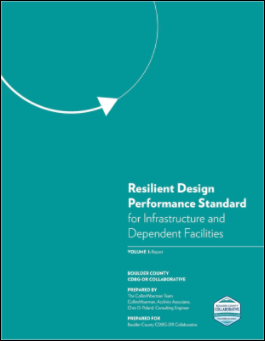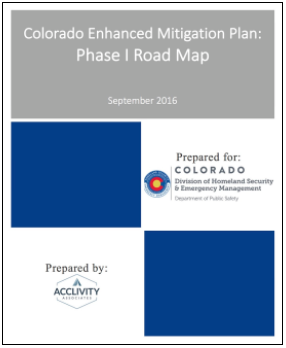[subsection color=”” full_width=”1″ full_height=”0″ background=”/wp-content/uploads/2015/05/acclivity-our-people-screen.jpg” parallax=”1″]
[home_heading]
[/home_heading]
[/subsection]
Planning
Manitou Springs Community Master Plan/Hazard Mitigation Plan
Acclivity partnered with Clarion Associates to assist the City of Manitou Springs, Colorado. develop a new Community Master Plan/Hazard Mitigation Plan for the City of Manitou Springs, Colorado. This integrated approach was designed to ensure natural hazards planning considerations were incorporated throughout the long-range planning process—from initial discussions regarding issues and opportunities, to the mapping and evaluation of existing conditions, to the development of goals, policies, and implementation actions. The Plan serves as the City’s roadmap to help shape future growth, support economic, environmental and social sustainability, and assure that the City remains resilient in the face of future challenges.

Boulder County Collaborative Resilient Design Performance Standard for Infrastructure and Dependent Facilities

Acclivity, in partnership with CollinsWoerman and Chris Poland Consulting Engineer, assisted the Boulder County Collaborative (a partnership of Boulder County communities formed in response to the catastrophic floods of September 2013) in the development of resilience performance goals and a new resilience performance standard for community facilities and infrastructure in Boulder County. Application of the Resilient Design Performance Standard helps design teams to broaden the design process for infrastructure on a project-by-project with the intent to increase the capacity of the whole community to address this increasing variability. Acclivity supported the stakeholder engagement process and provided local expertise on hazard mitigation and recovery planning, as well as assisted in the development of the performance standard, implementation plan, and staff training.
Colorado Enhanced Hazard Mitigation Plan: Phase 1 Road Map
 Acclivity assisted the Colorado Division of Homeland Security and Emergency Management (DHSEM) to assess the potential for accomplishing Federal Emergency Management Agency (FEMA) approval of an Enhanced State Hazard Mitigation Plan, a recognition from FEMA of States who are proactively implementing a comprehensive mitigation program. Enhanced status would designate Colorado for additional FEMA mitigation funds following Presidential disaster declarations. The project involved with Colorado State agencies through stakeholder interviews and a collaborative workshop to evaluate existing activities and identify opportunities and actions to improve coordination in risk reduction and resiliency. The final deliverable was a report summarizing current activities, opportunities for improvement, recommended actions, and key considerations for State leadership if pursuing an Enhanced State Hazard Mitigation Plan.
Acclivity assisted the Colorado Division of Homeland Security and Emergency Management (DHSEM) to assess the potential for accomplishing Federal Emergency Management Agency (FEMA) approval of an Enhanced State Hazard Mitigation Plan, a recognition from FEMA of States who are proactively implementing a comprehensive mitigation program. Enhanced status would designate Colorado for additional FEMA mitigation funds following Presidential disaster declarations. The project involved with Colorado State agencies through stakeholder interviews and a collaborative workshop to evaluate existing activities and identify opportunities and actions to improve coordination in risk reduction and resiliency. The final deliverable was a report summarizing current activities, opportunities for improvement, recommended actions, and key considerations for State leadership if pursuing an Enhanced State Hazard Mitigation Plan.
